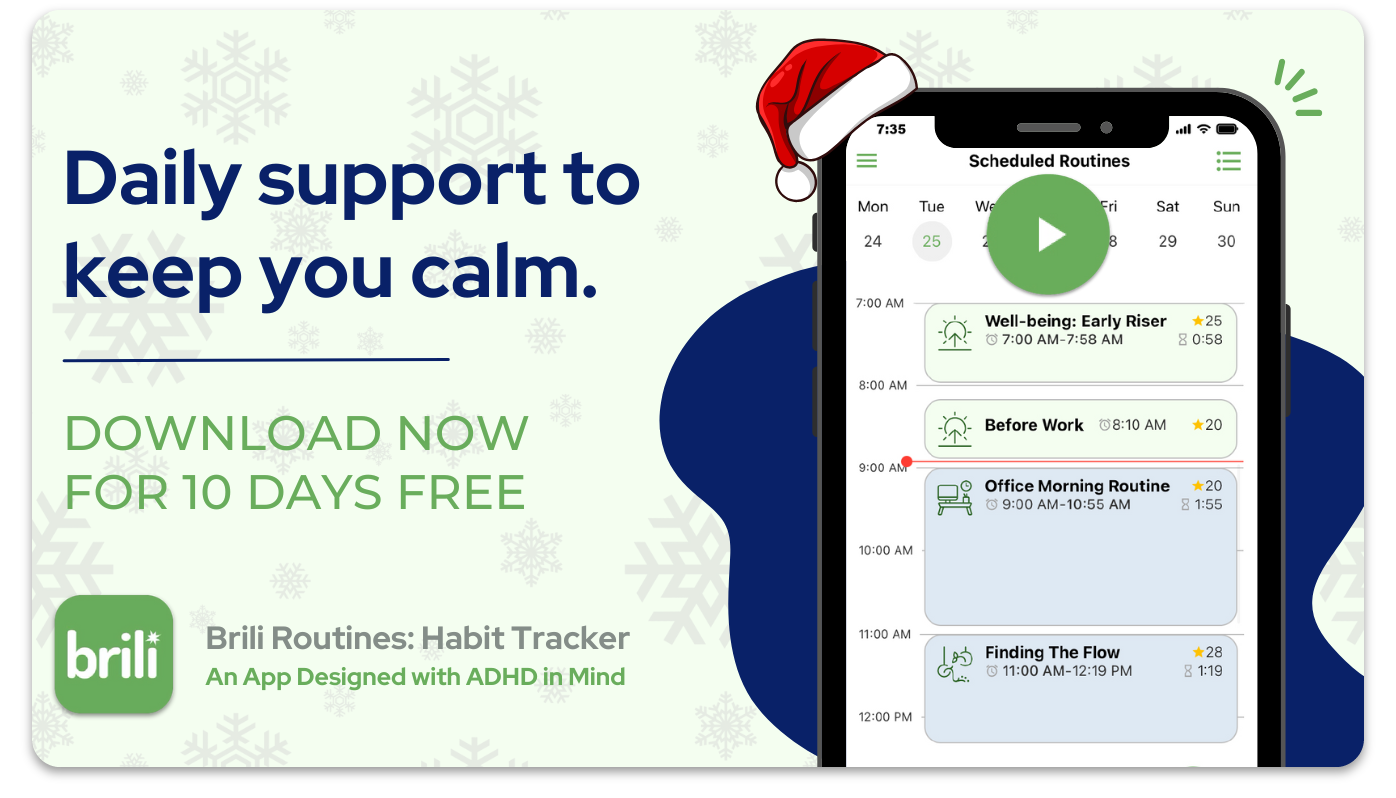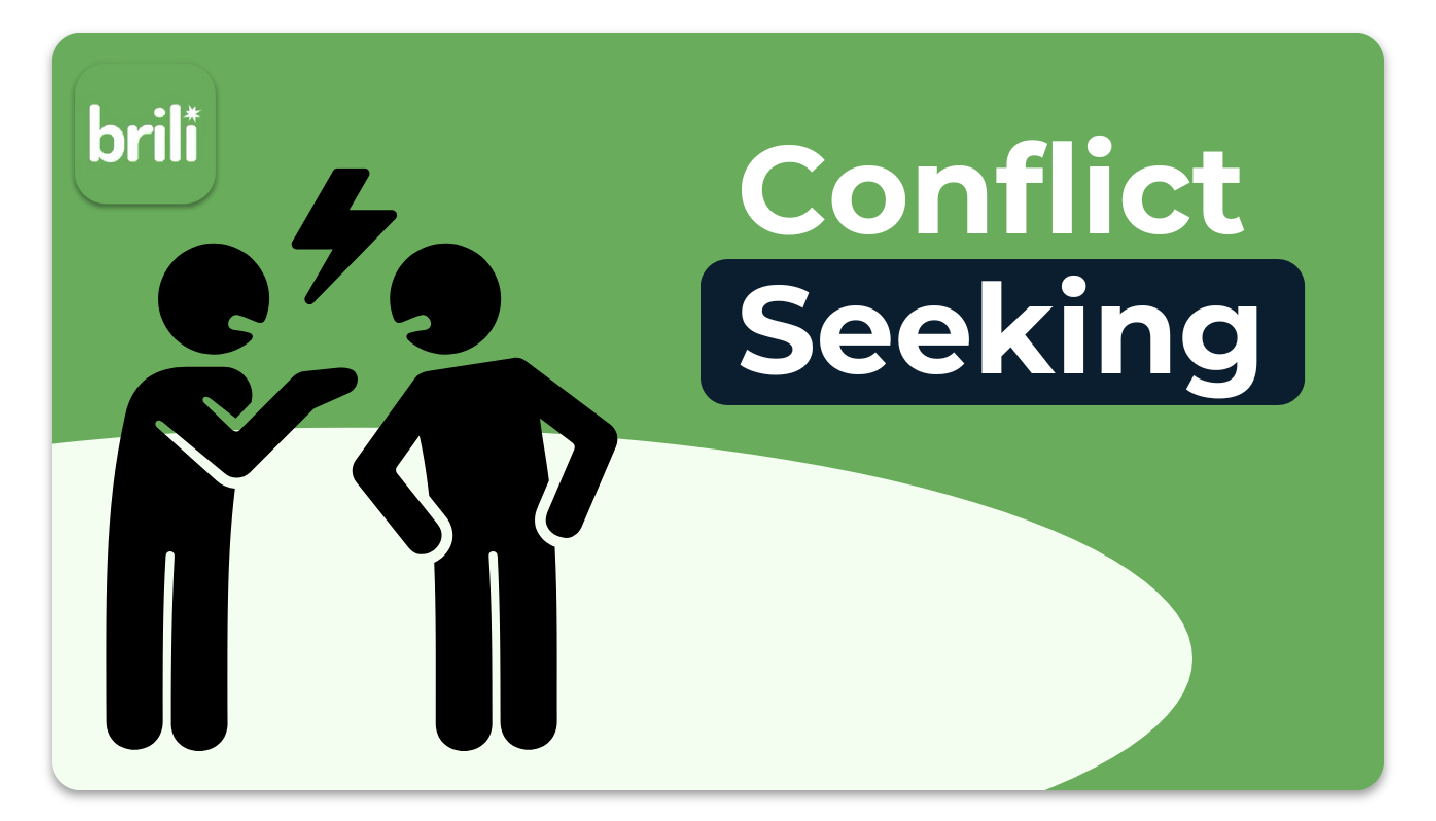A Guide for Adults with ADHD
The holidays are a time for connection, joy, and celebration—but they can also bring stress, criticism, and unexpected conflicts. For adults with ADHD, the season often adds a unique set of challenges.
Between high expectations, sensory overload, and potentially strained relationships, navigating the holiday season can feel overwhelming.
The good news? With ADHD-friendly holiday strategies, you can make this season manageable and even joyful. By addressing ADHD-related traits like sensitivity to criticism, dopamine-seeking behaviors, and difficulty with managing expectations, you can prepare yourself with strategies that foster peace and confidence.
Navigating ADHD challenges during the holidays is like untangling a string of Christmas lights—overwhelming at first, but manageable with care and the right approach. With self-awareness, practical tools, and compassion, you can make the season brighter and more joyful than ever.
1. Understanding ADHD and Holiday Stressors
The holiday season is a time of year that brings heightened emotions, packed schedules, and sensory overload—all of which can feel overwhelming for adults with ADHD.
While many people find the season joyful, it often amplifies ADHD challenges. The added pressure to engage in social events, fulfill obligations, and navigate family dynamics can leave you feeling unmoored and anxious.
It’s important to recognize how ADHD traits like sensitivity to criticism, a need for stimulation, and struggles with executive function can intersect with holiday stressors. By understanding these patterns, you can approach the season with greater awareness and develop strategies to handle its unique challenges.
- Sensitivity to criticism: Rejection Sensitivity Dysphoria (RSD), a common ADHD trait, can make even mild critiques feel deeply personal and overwhelming. Family comments about your life choices, habits, or ADHD behaviors can feel like a blow to your self-esteem.
- Dopamine-seeking behaviors: ADHD brains crave stimulation. During the holidays, this might mean impulsively shopping for last-minute gifts, overindulging in festive treats, or creating unnecessary drama for a dopamine boost.
- Managing expectations: The pressure to meet family expectations, create a “perfect” holiday, or mask ADHD traits can lead to stress, exhaustion, and burnout.

2. Reframe Expectations and Set Boundaries
The holiday season often comes with an unspoken rule: it must be picture-perfect. For adults with ADHD, this expectation can lead to mounting stress, as juggling commitments, relationships, and self-care feels nearly impossible.
The pressure to meet external expectations—whether they’re tied to family traditions, social gatherings, or gift-giving—can leave you drained and anxious.
To combat this, it’s essential to shift your perspective. How about this one: the holidays don’t have to meet anyone’s idealized vision, and you are allowed to prioritize your mental and emotional well-being. By redefining what the season means to you and establishing boundaries, you can create a holiday experience that aligns with your needs and values.
- Define your priorities: Reflect on what matters most to you this holiday season—whether it’s spending quality time with loved ones, prioritizing rest, or enjoying your favorite traditions. Let go of the rest.
- Communicate clearly: If certain family dynamics are triggering, have an honest conversation beforehand. For example, if you know your uncle likes to critique your career, you could say, “Let’s focus on catching up about our hobbies this year.”
- Plan for transitions: Give yourself extra time between events to decompress. This reduces overwhelm and keeps your energy in check.
3. Address Criticism with Confidence
Family gatherings can be filled with warmth and laughter, but they can also be a breeding ground for unsolicited advice and criticism—especially for ADHDers.
Whether it’s a comment about your career path, your forgetfulness, or even the way you engage in conversations, criticism can feel like a personal attack, triggering feelings of rejection or inadequacy.
Understanding your sensitivity to criticism and preparing in advance can help you respond with composure and self-assurance. By shifting your mindset and using practical communication tools, you can navigate critical comments without losing your cool—or your confidence.
- Pause before reacting: If someone criticizes you, take a deep breath and count to five. This brief pause gives you time to regulate your emotions and respond intentionally rather than impulsively.
- Use “I” statements: For example, if someone comments on your hyperactivity, you might say, “I’ve been working on channeling my energy, but it’s still a challenge. I appreciate your patience.”
- Redirect the conversation: Change the subject to something positive or neutral. If your family member starts nitpicking, steer the discussion toward shared holiday plans or a fun memory.
4. Find Alternative Sources of Dopamine
The ADHD brain thrives on stimulation, which can sometimes lead to impulsive decisions that cause more harm than good. The excitement of the holiday season, with its whirlwind of activities, sights, and sounds, can further amplify your brain’s craving for novelty and reward.
However, seeking dopamine in unhelpful ways—like overspending, overindulging, or stirring up conflict—can create unnecessary stress or guilt.
Instead of falling into these traps, consider healthier and more sustainable ways to satisfy your brain’s needs. By exploring new activities, embracing creative outlets, and finding joy in movement or small rewards, you can enjoy the season while staying grounded and focused.
- Engage in novelty: Try a new holiday recipe, decorate cookies in a unique way, or create DIY gifts. Novelty and creativity are natural dopamine boosters.
- Move your body: Physical activity—like dancing to holiday music, taking a brisk walk, or playing in the snow—releases feel-good chemicals that calm your mind and energize your spirit.
- Set mini-rewards: Break up holiday tasks (like wrapping presents) into smaller steps and reward yourself after each one with something simple, like listening to a favorite song.
5. Calm Your ADHD Mind in the Heat of the Moment
The holiday season can often feel like a pressure cooker, with high-energy gatherings, endless to-do lists, and potential family conflicts.
For ADHDers, these moments can escalate quickly, leaving you feeling overwhelmed, frustrated, or out of control. Finding ways to calm your mind and regain balance in the midst of chaos is essential for maintaining your peace and focus.
Grounding techniques are a powerful way to manage intense emotions and restore your sense of calm. By practicing mindfulness and incorporating sensory-based strategies, you can navigate challenging situations with clarity and control.
- Breathing exercises: Practice box breathing: inhale for 4 counts, hold for 4 counts, exhale for 4 counts, and hold for 4 counts. This reduces stress and centers your mind.
- Sensory grounding: Focus on your senses by identifying five things you see, four you feel, three you hear, two you smell, and one you taste. This anchors you in the present moment.
- Visualize a calm space: Close your eyes and picture a peaceful environment, like a serene forest or your coziest spot at home. Use this visualization to reset during tense interactions.
6. Build a Holiday Toolkit
Navigating the holidays with ADHD can feel like a marathon, but having the right tools and strategies in place can make a world of difference.
Just as a chef relies on a well-stocked kitchen to prepare a feast, you can create your own holiday toolkit to help you manage stress, maintain focus, and recharge when needed.
A thoughtful holiday toolkit includes items and practices that address your unique ADHD challenges. Whether it’s planning aids, sensory management tools, or emotional support systems, preparing in advance ensures that you’re equipped to handle whatever the season throws your way.
- Noise-canceling headphones: To escape sensory overload during family gatherings.
- Fidget tools: Small, discreet items to channel nervous energy.
- Scripts for common triggers: Pre-plan responses to anticipated criticisms or conflicts.
- Digital reminders: Use your phone to set reminders for tasks, transitions, and self-care breaks.
7. Practice Radical Self-Compassion
The holiday season is a time when it’s easy to focus on what you’re not doing “right”—whether that’s comparing yourself to others, feeling guilty about unfinished tasks, or regretting impulsive decisions. For adults with ADHD, these feelings can be amplified by internalized criticism or past holiday “failures.”
This year, make a commitment to treat yourself with kindness and grace. Practicing radical self-compassion means acknowledging your efforts, celebrating your strengths, and forgiving your mistakes. Remember, the holidays aren’t about perfection—they’re about connection, joy, and learning to accept yourself as you are.
- Acknowledge your strengths: Your creativity, resilience, and enthusiasm are gifts that bring joy to the holiday season.
- Forgive slip-ups: If you lose your cool or overspend, remind yourself that you’re human. Reflect on what you can do differently next time and move forward.
Your Turn
As you reflect on the holiday season ahead, take a moment to consider the challenges you’re most likely to face and the strategies that resonate with you.
What feels most important to address—managing criticism, finding healthier ways to seek stimulation, or setting clearer boundaries?
Think about one actionable step you can take today to prepare yourself, whether it’s practicing a grounding technique, planning downtime, or rethinking your holiday priorities.
Remember, this season is as much about your well-being as it is about connecting with others. By focusing on what matters most to you and approaching challenges with self-awareness and compassion, you can create a holiday experience that feels meaningful and manageable.
Which strategy will you try first to make it your best holiday season?
Read More:

